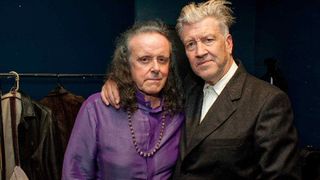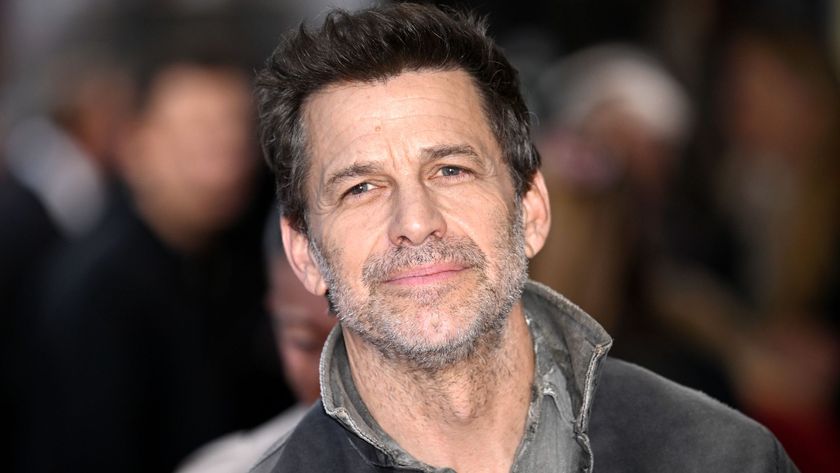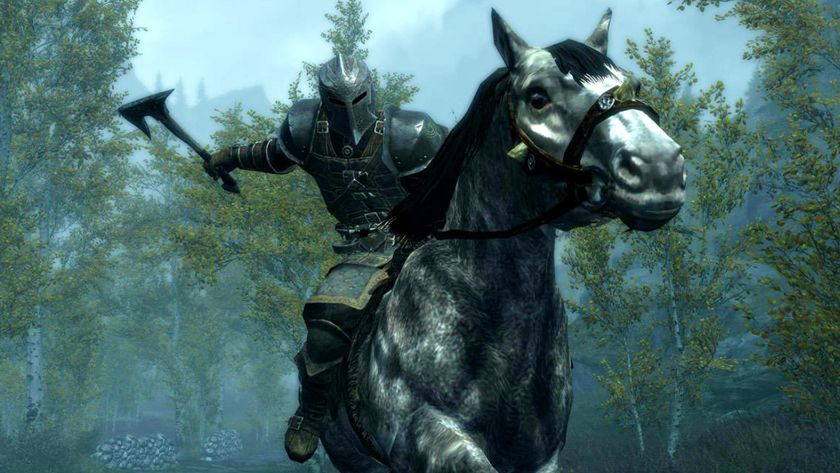David Lynch and Donovan talk to Total Film!
About movies, music and meditation...

As soon as we heard that David Lynch and his pal, singer-songwriter Donovan, were in town to promote the joys of TM and, respectively, a book ‘Catching The Big Fish’ and a DVD ‘Donovan Live,’ we knew we had to talk to them.
We didn’t realise it was going to get quite so metaphysical but, hey, when Lynch talks, we listen.
So, break out your thesaurus, have a pen and paper out to take some notes, and get ready to dive into the mind of a genius…
Do you have ideas when you mediate, or does meditation make you more receptive to ideas?
David Lynch: When you truly transcend, and it’s proven on the EEG machine with brain research that with the technique of transcendental meditation, you will truly transcend, you will truly experience the deepest level of life, which is beyond duality, it’s oneness, it’s beyond the field of relativity, it’s non-relative absolute pure consciousness.
What qualities does that consciousness have?
DL: One of those qualities is infinite intelligence. Another, infinite creativity, another infinite bliss, infinite love, energy, power, all of these positive qualities. So when you experience that, you enliven it, you infuse it, you infuse it and you grow in those qualities, you expand your ball of consciousness.
Sign up for the Total Film Newsletter
Bringing all the latest movie news, features, and reviews to your inbox
There are six or seven hundred studies validating the technique and showing the benefits, so they know that IQ goes up – you’re experiencing infinite intelligence enlivening that, so it’s natural that intelligence grows, you get more and more understanding. So when you experience infinite creativity, it’s natural that that expands, that gets more.
How does TM help creativity?
DL: Creativity is to do with problem solving, it has to do with understanding and translating ideas. Ideas are thoughts and thoughts are always bubbling up, now if your ball of consciousness is small – if you picture six o clock at the bottom, that’s as deep as that consciousness gets, all thoughts coming up, they come up through the subconscious and they don’t become known until they hit the conscious mind. Now if you’re expanding that ball, six o clock gets deeper, you’re going to catch things coming up at a deeper level.
What happens when you catch things at a deeper level?
DL: When you catch them at a deeper level, they say there’s more information there, more of a thrill, more understanding and appreciation of that idea. And right next to the absolute, there’s a field of all knowingness, all knowingness is like intuition, so you can know when something is incorrect, sounds kinda obvious, but it’s so critical, you see it’s not correct, and then that knowingness, that intuiting sees a way to make it correct.
It’s not so intellectual, it just flows that way. If it’s not correct, you see it right away – ideas come to make it feel correct for you, based on the idea that you’ve got. So it feeds this creative process, catching ideas at a deeper level, creativity flowing more freely, because the heavy weight of negativity lifts when you expand the positive. So you’re saying goodbye to tensions, and stresses or depressions or anger, things that block that.
Sometimes anger can be positive, though…
DL: It’s not that you don’t want righteous anger – righteous anger, being against something or for something powerfully, it’s beautiful. And this is where all the power is in the transcending, you’re infused with big power to do the thing you need to do. But it’s negativity going away, that heavy weight.
Real anger occupies the mind and leaves little room for the flow of ideas. With real depression, you can’t get out of bed in the morning, you can’t create. All these negative things cramp creativity – so that’s lifting away, positive is growing and your suddenly happy in the doing and the flow of creativity, and understanding of the thing growing. Of life, of human nature, the human condition, all the things – it feeds the process incredibly. Whatever your avenue is it will feed it.
Donovan, your music is described as positive, how does transcendental meditation feed your creativity?
Donovan: My music is described as positive, to the point when I first began, I said, ‘something’s wrong here, you should be angst ridden!’ I would say that it’s definitely accessing this unified field – it works. And yet, we quite rightly should be sceptical, in fact, a lot of the books about the path to meditation and the use of meditation is be sceptical the whole way, then you’ll be beautifully surprised when it works. If you believe all the way, you might miss the great joy of it actually working.
Can I say I have dark songs? Yes I do, I have a dark song or two, but what is this overwhelmingly positive attitude that Donovan songs have? It is obviously my discovery of the songs myself. I’m discovering them. Unlike David, who actually controls an enormous amount of elements when creating a theatrical film, it’s me and the guitar and the lyric. I’m the director, I’m the singer and I’m the audience.
And your music’s full of imagery…
D: Yeah, and the images in my songs I definitely take from my art school background, David was a painter to begin with and so was I and to actually look at my lyrics in the theatrical sense, I’m creating a story.
But when I dive in and meditate, I bring out the great feeling of joy. I’m a misnomer, I’m a very unusual part of my generation of songwriters, I don’t know if anyone knows where to place me. It’s too solid, it’s too wonderful, and so full of life and energy, and that’s what we want, you don’t have to be angst ridden as an artist.
And you got into mediation with The Beatles, another positive band…
D: If you say that The Rolling Stones were dark and The Beatles are full of energy and up, maybe that’s a good description. When I was hanging out with George Harrison mainly, we were reading these books on meditation, looking for an answer, wondering where it was. And when we met someone, a Yogi, Maharishi Mahesh Yogi, it was astounding to us. So we did go to India, in 1968, one Beach Boy, four Beatles and me, and friends, and we learnt a technique and brought it back to the West, which ushered in an enormous new age for the world, I think, from the Maharishi’s very well proven technique by the way – you can’t say it all in an interview, but this one works.
David, in the book you talk about how you were in a very negative place when you first started meditating – do you think meditation could help everybody?
DL: If you’re a human being, it works. And if you’re a human being, you’ve got to realise you have potential. People don’t realise, they’re not told that we as human beings have a hug potential, it’s called enlightenment, for total fulfilment, liberation, freedom, end of suffering, end of negativity, it’s graduation – it’s a state described as more than the most, this is the potential.
Education should develop the full potential – this is consciousness-based education. Facts and figures are great, intellectual understanding is great, but you need that experience and you need to unfold that full potential, then you get the intellectual understanding of that, so it’s knowledge and experience, knowledge and experience, that’s how we grow. It’s a real thing, that’s why people have been sitting in meditation throughout time. I used to think it was a waste of time to do it, I used to think, ‘what are they doing? These people are nuts! And they’re not getting any work done.’ But I was very wrong. They’re doing something. They’re doing something huge.
This is an easy, effortless, but profound technique. A ten-year-old can get their mantra and learn this technique. It’s not about concentrating, it’s not contemplation, it’s not about trying, it’s the nature of the mind to go to a field of greater happiness, this turns-on awareness within and naturally you dive, because each deeper level has more happiness, so you transcend the big ocean of infinite happiness, infinite intelligence.
So, it’s a holistic experience to transcend – meaning all avenues of life will improve, the holistic experience on the brain research, on the EEG machine, it’s the only experience in life that lights the full brain, total brain coherence. When Donovan sings, he uses one part of his brain, when he speaks, another part, when he’s doing this, another part, but here’s an experience, transcending, that utilises the full brain. That should tell people – brain research I think is one of the things that will make people say ‘Woah!’ Experience the deepest level of life, get there – Maharishi gives entry to the transcendent, easy, effortless, boom! Get on the road, and life will improve.
Sam Ashurst is a London-based film maker, journalist, and podcast host. He's the director of Frankenstein's Creature, A Little More Flesh + A Little More Flesh 2, and co-hosts the Arrow Podcast. His words have appeared on HuffPost, MSN, The Independent, Yahoo, Cosmopolitan, and many more, as well as of course for us here at 12DOVE.













